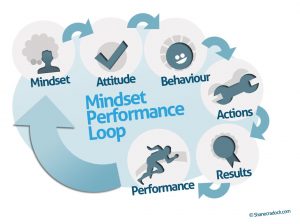Do You Have The Four Money Mindsets?
 Tips are good. Mindsets are better. If you’re trying to reach a fitness goal – losing 15 pounds, for instance – you may get a temporary boost from a diet or exercise tip. If this doesn’t work, you might think that some people have an inherent ability to live healthy and active lifestyles. I can tell you from personal experience it doesn’t come from “tips”. In physical health and financial health, your mindset is everything. Here are four financial mindsets to help you. Which one dominates your outlook?
Tips are good. Mindsets are better. If you’re trying to reach a fitness goal – losing 15 pounds, for instance – you may get a temporary boost from a diet or exercise tip. If this doesn’t work, you might think that some people have an inherent ability to live healthy and active lifestyles. I can tell you from personal experience it doesn’t come from “tips”. In physical health and financial health, your mindset is everything. Here are four financial mindsets to help you. Which one dominates your outlook?
Spender
It’s your money and you should enjoy it, and you can’t enjoy your money when it’s sitting in a bank. You have to spend it to get the benefit. Give some away to a local non-profit. Help your nephew with college expenses. Go on an epic family trip, one that you’ll remember forever. That’s real value. The best spenders know that the ‘spender’ mindset is about making sure you always get good value for your hard earned capital. Don’t let it go to waste. Invest in experiences and maybe think twice about buying that boat. Try rating your purchase in $’s per satisfaction. Will I get $100K in satisfaction from this brand new car? Will I get $100K in satisfaction from funding my daughter’s wedding? Which is more valuable and do I have to make a choice between the two?
Investor
Don’t let your money be lazy. The best investors ensure that their money is always working for them. They know the difference between speculation and investing. As an investor, you will always work, but not always for money. Some day, your money will generate enough income for you to allow you the freedom to shift your focus to other exciting challenges and opportunities. How much should you put to work? How much should you keep in cash to fund your life? The answer? It depends… It depends on how much you have right now and how much you are expected to earn from your job. The investor knows how much they need right now and how much they can send off to work for them.
Saver
You have a brilliant mind for business and are able to translate your skills into considerable wealth for you and your family. Saving portions of your money along the way reduces your risk of being forced into a situation where you have to recreate those same results. A healthy degree of savings will ensure the longevity of your wealth. Tell your kids, for example, that saving $10,000/year from age 22 to retirement with an 8% equity return will yield $5million by the time they are 65. Disciplined savings will take the ‘luck’ factor out of achieving millionaire status. The saver operates out of humility and a dash of healthy fear.
Earner
People with a primary focus on the “earner” mindset are experts in converting time and creativity into capital. As an earner, you know that earnings come in multiple forms from salaries to equity to debt interest payments. As long as you’re earning capital, you don’t have to worry as much about savings or investing, right? Not so fast. The ‘earning’ is the hardest part but don’t let it push saving or investing out of the window.
If you identify with the “earner” mindset, you will like this one number: 25x. Take how much you spend per year, or want to spend, and multiply it by 25x. If that’s $250,000 per year then you need $6.25M to fund that lifestyle forever. Where did 25x come from? It’s the inverse of a 4% return on your portfolio, a consistently achievable conservative annual return on your portfolio. Earners know they can pay themselves approximately 4% per year out of their portfolio without significantly drawing down the balance. Consider this your family endowment.
Ask yourself
What is my relationship with each of these mindsets? Am I an earner who doesn’t know how to spend? A saver who is too afraid to invest? Have I picked my favorites at the expense of others? Just like the healthiest people eat well, exercise and fend off bad habits, you’ll be in the best financial health if your inner spender, investor, saver and earner can all get along.
Max Osbon – mosbon@osboncapital.com
Weekly Articles by Osbon Capital Management:
"*" indicates required fields
